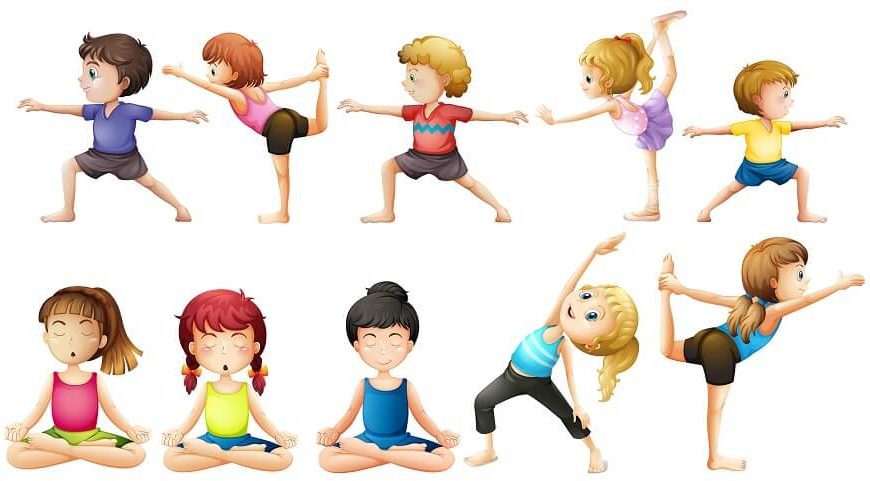We all know that physical fitness activities are essential to a child’s development and overall health. Unfortunately, far too many children are not getting enough physical activity. Fortunately, schools are essential in helping promote physical fitness activities among kids. To help kids stay active, schools must provide access to appropriate facilities and resources, such as playgrounds and sports equipment.
Schools need to provide education about the importance of physical fitness so that students understand why it is important for their health and well-being. This article looks at how schools can help promote physical fitness development for kids by looking at how they can encourage children to stay active and healthy.
Why Physical Fitness Should Be Promoted in Schools
Physical fitness has multiple benefits for children, including improved self-esteem, better academic performance, and fewer behavioral issues. Schools are in an ideal position to promote physical fitness, given the large number of children they reach and the availability of beneficial facilities such as playgrounds, sports fields, and equipment.
Given this, schools should take a multidimensional approach to promote physical fitness development for kids. This includes:
- Regular physical education classes and activities
- Extracurricular sports programs
- Developing strategies to make students get more active during the non-academic time (e.g., walking clubs at lunchtime)
- Encouraging healthy eating habits with the help of the school cafeteria or nutrition programs
- Providing resources to families, such as access to educational materials on safe physical activity practices and nutrition information
Schools can instill healthy habits that will extend well beyond their walls by comprehensively promoting physical activity. Ultimately, this will shape kids’ lives and help them live healthier, happier lives for years.
Benefits of Physical Fitness Activities for Kids
Physical fitness activities can benefit your child beyond the apparent health benefits. For example, physical fitness exercises can help build self-esteem, release energy, and help with stress management. It can also help your child make friends and allow them to learn new physical coordination and strength skills.
Studies have found that regular physical fitness activities can help reduce diabetes and heart disease risk in children. Additionally, physical fitness activities can improve cognitive functioning, allowing your child to focus better in school and think more clearly.
Physical activity is also essential for children’s development as they grow. Regular physical activity helps build strong bones, muscles, and joints and helps children maintain a healthy weight. Children must remain active to develop vital motor skills such as running, catching a ball, jumping rope, or dancing—all of which will serve them well later in life.
Assessing the Impact of Physical Fitness Programs in Schools
Physical fitness games for kids in schools have been shown to affect students’ overall physical and mental health positively. It has been scientifically proven that physical activity can improve learning and academic performance, reduce absenteeism and improve overall school morale.
But how can we assess the impact of physical fitness exercises in schools? Here is how:
- Health Outcomes- The most obvious way to assess the impact of physical fitness programs in schools is by looking at the health outcomes of students. Suppose there are improved overall health outcomes, such as lower body mass index (BMI), a decreased risk for obesity, or increased cardiovascular endurance. In that case, physical fitness games for kids will likely have a positive effect.
- Academic Performance- Another way to measure the success of physical fitness activities is by looking at academic performance. Studies have found a correlation between regular physical activity and improved academic performance, including improved grades, test scores, and cognitive abilities.
Finally, school administrators should measure student satisfaction with their physical fitness programs and physical fitness games for kids by asking for student feedback after each program. This can provide valuable insight into what works and doesn’t work for students so that adjustments can be made accordingly.
How Parents Can Support School-Based Physical Fitness
Physical fitness activities are integral to children’s health and well-being, and parents have a crucial role in supporting school-based physical fitness exercises.
To encourage your child to be physically active, here are some practical steps for parents:
- Model healthy behavior – Participate in physical fitness activities with your child. Demonstrating good sportsmanship and a sense of fun will help to set the tone for their attitudes and activities.
- Make physical fitness exercises convenient – Where possible, create opportunities for your child to be physically active during the day, such as walking or cycling to school rather than taking the car or bus. Explore some physical fitness games for kids.
- Promote healthy eating habits – Ensure your children have easy access to nutrient-rich snacks like fresh fruits and vegetables and whole grains and healthy hydration options like water or low-fat milk. These things are essential for the physical fitness development of kids.
- Talk about safety – Have conversations with your children about staying safe while physically active, like following appropriate traffic rules when cycling or walking in populated areas.
- Work in partnership with schools – Ask questions at parent-teacher meetings about what activities might interest your child, and see if there are any opportunities you could get involved with at school to support physical fitness games for kids.
- Encourage goal setting – Help your child develop a plan for a regular physical fitness activities routine that includes realistic goals that can be achieved within a reasonable timeframe (e.g., 10 minutes per day).
In conclusion, schools are essential in promoting physical development and fitness for kids. They should be taking steps to ensure that all students are benefiting from physical education activities. With an emphasis on providing access to physical fitness activities, schools can impact students’ physical health and social, mental, and emotional well-being, creating an atmosphere of positivity and resilience.
Through appropriate educational programs, extra-curricular activities, and access to facilities, Eurokids promotes physical fitness and helps all kids to grow, develop, and strive for their best. Contact us today to learn more about preschool admissions.














